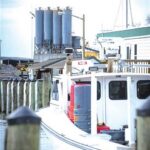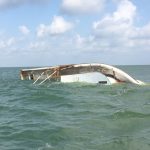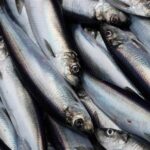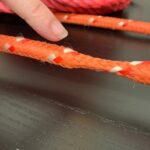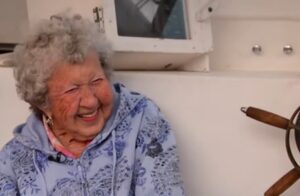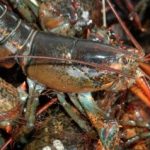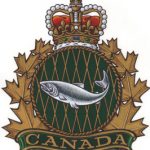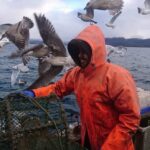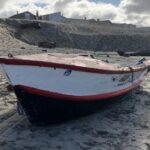Daily Archives: August 21, 2018

US Coast Guard Warns of LED Lighting Interference to Marine Radios, AIS Reception
The US Coast Guard says it’s received reports from crews, ship owners, inspectors, and other mariners regarding poor reception on VHF radiotelephone, digital selective calling (DSC), and automatic identification systems (AIS) when in the vicinity of LED lighting systems. This could include interior and exterior lighting, navigation lights, searchlights, and floodlights found on vessels of all sizes. “Radio frequency interference caused by these LED lamps [was] found to create potential safety hazards,” the Coast Guard said in an August 15 Marine Safety Alert. >click to read<19:47
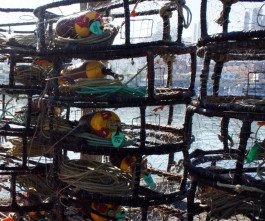
Crabbers to get federal disaster relief
The California Department of Fish and Wildlife (CDFW) has proposed a spending plan for federal Dungeness Crab disaster relief funding after taking input from fishermen, processors and charter boat operators. The state’s 2015 to 2016 commercial Dungeness and rock crab seasons were declared as fisheries disasters after being drastically curtailed due to algae blooms and the domoic acid toxin they produced. Approval of $28.8 million in federal relief funding was gained last June, with most of it covering Dungeness losses. Based on guidelines from the federal National Oceanic and Atmospheric Administration (NOAA) and feedback from industry stakeholders, CDFW proposes that 89 percent of the relief funding be spent on “direct payments” to commercial fishermen, buyer/processors and sport charter boat operations. >click to read<19:31
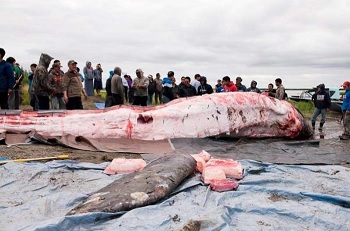
Alaska Natives believed whale hunt was legal, Enviro group critisizes NOAA
Indigenous hunters in Alaska initially believed they were legally hunting a beluga whale when they unlawfully killed a protected grey whale with harpoons and guns after the massive animal strayed into a river last year, a federal investigative report said. ,, “The hunters also believed that if they were the first ones to shoot or harpoon the whale, the kill would be theirs,” it states. “This comes with a large amount of community pride.”,, The hunt underscores the tension between animal rights activists who want to safeguard at-risk species and indigenous residents who depend on subsistence fishing and hunting as part of their ancient culture and traditions. The Washington, D.C.-based Animal Welfare Institute criticized NOAA for not pushing for charges over a violation of the Marine Mammal Protection Act. >click to read<17:02

Lobster Fishermen say $6M in taxpayer dollars for N.S. effluent plant is conflict of interest
Nova Scotia taxpayers have contributed $6 million toward design work and engineering studies for a new wastewater treatment plant that will handle effluent discharged from the Northern Pulp paper mill in Pictou County. Those against the plan to dump what comes out of the facility into the Northumberland Strait are not happy the province is picking up part of the cost. Those against the plan to dump what comes out of the facility into the Northumberland Strait are not happy the province is picking up part of the cost. “It’s a conflict of interest. A direct conflict of interest,” said Ronnie Heighton, a lobster fisherman and president of the Northumberland Fishermen’s Association.>click to read<15:50

Farmers protest California water plan aimed to save salmon
Hundreds of California farmers rallied at the Capitol on Monday to protest state water officials’ proposal to increase water flows in a major California river, a move state and federal politicians called an overreach of power that would mean less water for farms in the Central Valley. “If they vote to take our water, this does not end there,” said Republican state Sen. Anthony Cannella. “We will be in court for 100 years.” Environmentalists and fishermen offered a different take on the other side of the Capitol to a much smaller audience. “For the 50 years corporate agriculture has been getting fat,” said Noah Oppenheim of the Pacific Coast Federation of Fishermen’s Associations. “Salmon fisheries have been tightening belts.” >click to read<13:17
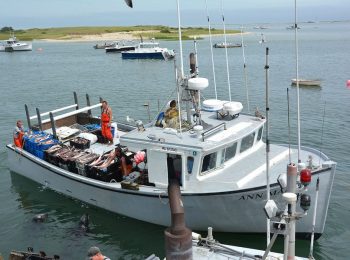
Can dogfish save Cape Cod fisheries?
Cape Cod has nearly lost its namesake fish, due to overfishing and climate change. So fishermen have switched to dogfish, skates, and other more plentiful options. This move could help revive the Massachusetts fishing industry, and might even help the cod rebound, researchers say. But getting Americans to bite may not be as easy. “This is the fish we could feed the United States with,” says Chatham fisherman Doug Feeney. “We have people that are hungry. We have prison systems. We have vets. We have homeless people. There’s just so much that can be done with this product.”>click to read<10:49
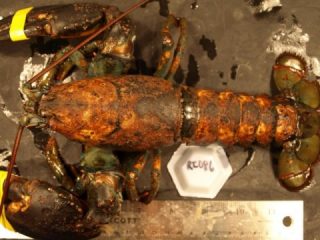
Epizootic Shell Disease – New findings suggests earlier springs and hotter summers foster increase in shell infections
New findings reveal that as coastal waters in the northeastern U.S. continue to warm — bottom temperatures in Long Island Sound have increased 0.7°F per decade over the last 40 years — resident lobsters are becoming increasingly susceptible to epizootic shell disease, a condition that has depleted the southern New England population and severely impacted the local lobster fishery.,,, As the name implies, epizootic shell disease occurs when the bacterial populations that normally inhabit the surface of a lobster’s carapace change and begin consuming the cuticle, causing it to erode. >click to read<09:18




































